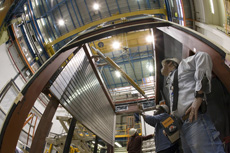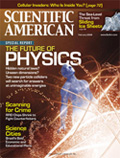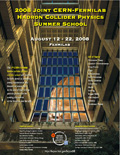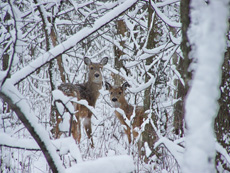SciBooNE recognized for reusing science

Camillo Mariani (top), and Lucio Ludovici (middle), both from University of Rome, La Sapienza, and Chris Richardson and John Cornele from Fermilab install re-used electromagnetic calorimeter modules into an element of the SciBooNE experiment.
When SciBooNE collaborators put the neutrino experiment together, they thought more about tightening their belts than setting industry standards. Still, the experiment, cobbled together from used parts and recycled detectors, recently received recognition as a DOE Office of Science Noteworthy Practice and a pollution prevention model.
DOE environmental scientist Sally Arnold congratulated the experiment collaborators for their creativity in building the experiment.
"Among stiff Office of Science competition in the pollution prevention arena, Fermilab
continues to shine," Arnold said.
"This award means a lot to us," said project head Rick Tesarek. "It is a big honor for the experiment and for Fermilab."
The SciBooNE experiment measures cross-sections of neutrino interactions. It consists of multiple detector systems, each made almost entirely of reused parts, including a detector previously used in an experiment in Japan. Tesarek estimates that without the efforts of collaboration members, who borrowed and scrounged for parts and materials, the experiment would have cost $4.5 million. Instead, it cost $1.2 million.
"What they did was pretty new," said Eric Mieland, Fermilab's recycling coordinator. "They went to great lengths to make it work differently."
Although Fermilab has previously received awards for best practices in recycling and pollution prevention, none, Mieland said, were for efforts like this.
"They figured out how to do this experiment without spending the money," said Mieland. "We've never seen recycling like this before. It is a great example."
-- Rhianna Wisniewski
|



